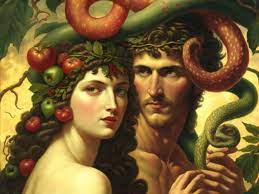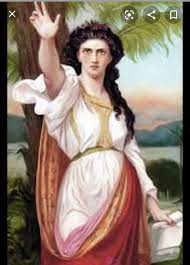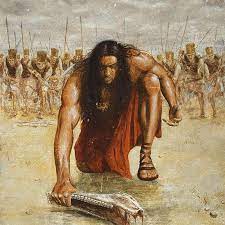>

JESUS
(1) Jesus born 1 to 4 BC - AD 30 or 33, also referred to as Jesus Christ, Jesus of Nazareth, and many other names and titles, was a first-century Jewish preacher and religious leader. He is the central figure of Christianity, the world's largest religion. Most Christians believe Jesus to be the incarnation of God the Son and the awaited messiah, the Christ that is prophesied in the Hebrew Bible.
Virtually all modern scholars of antiquity agree that Jesus existed historically
. Accounts of Jesus' life are contained in the Gospels, especially the four canonical Gospels in the New Testament. Academic research has yielded various views on the historical reliability of the Gospels and how closely they reflect the historical Jesus. As a Galilean Jew, Jesus was circumcised at eight days old, was baptized by John the Baptist as a young adult, and after 40 days and nights of fasting in the wilderness, began his own ministry. He was often referred to as "rabbi". Jesus often debated with fellow Jews on how to best follow God, engaged in healings, taught in parables, and gathered followers, among them twelve were his primary disciples. He was arrested in Jerusalem and tried by the Jewish authorities, turned over to the Roman government, and crucified on the order of Pontius Pilate, the Roman prefect of Judea. After his death, his followers became convinced that he rose from the dead, and following his ascension, the community they formed eventually became the early Christian Church that expanded as a worldwide movement. Accounts of his teachings and life were initially conserved by oral transmission, which was the source of the written Gospels.

MOSES
(2) Moses is considered the most important prophet in Judaism and one of the most important prophets in Christianity. According to the Bible Moses was the leader of the Israelites and lawgiver to whom the authorship of the Torah (the first five books of the Bible) is attributed.

DAVID
(3) David "THE beloved one" was the second king of the United Kingdom of Israel. Historians of the Ancient Near East agree that David probably lived 1000 BCE. David ascended the throne as the king of Israel in 885 BC. David is concidered the greatest king of Israel. He established the promise land as specified by God. God had promised that the throne of David would be established forever (2 Samuel 7:4).

MARY
(4) Mary was from Nazareth she was the wife of Joseph and the mother of Jesus. The gospels of Matthew and Luke describe Mary as a virgin who was chosen by God to conceive Jesus through the Holy Spirit. After giving birth to Jesus in Bethlehem, she raised him in the city of Nazareth in Galilee, and was in Jerusalem at his crucifixion and with the apostles after his ascension.

PAUL
(5) Paul also named Saul of Tarsus, commonly known as Paul the Apostle was a Christian apostle who spread the teachings of Jesus in the first-century world. For his contributions towards the New Testament, he is generally regarded as one of the most important figures of the Apostolic Age, and he also founded several Christian communities in Asia Minor and Europe from the mid-40s to the mid-50s AD.
The main source of information on Paul's life and works is the Acts of the Apostles book in the New Testament and approximately half of its content document them. Paul was not one of the Twelve Apostles, and did not know Jesus during his lifetime. According to the Acts, Paul lived as a Pharisee and participated in the persecution of early disciples of Jesus, possibly Hellenised diaspora Jews converted to Christianity, in the area of Jerusalem, prior to his conversion. Some time after having approved of the execution of Stephen, Paul was traveling on the road to Damascus so that he might find any Christians there and bring them "bound to Jerusalem". At midday, a light brighter than the sun shone around both him and those with him, causing all to fall to the ground, with the risen Christ verbally addressing Paul regarding his persecution in a vision. Having been made blind, along with being commanded to enter the city, his sight was restored three days later by Ananias of Damascus. After these events, Paul was baptized, beginning immediately to proclaim that Jesus of Nazareth was the Jewish messiah and the Son of God. He made three missionary journeys to spread the Christian message to non-Jewish communities in Asia Minor, the Greek provinces of Achaia, Macedonia, and Cyprus, as well as Judea and Syria, as narrated in the Acts.

ABRAHAM
(6) Abraham originally Abram is the common Hebrew patriarch of the Abrahamic religions, including Judaism, Christianity, and Islam. In Judaism, he is the founding father of the special relationship between the Jews and God; in Christianity, he is the spiritual progenitor of all believers, whether Jewish or non-Jewish; and in Islam, he is a link in the chain of Islamic prophets that begins with Adam and culminates in Muhammad.

ELIJAH
(7) Elijah, his name means "My God is Yahwe" a prophet and a miracle worker who lived in the northern kingdom of Israel during the reign of King Ahab in the 9th century BC.
In 1 Kings 18, Elijah defended the worship of the Hebrew God over that of the Canaanite deity Baal. God also performed many miracles through Elijah, including resurrection, bringing fire down from the sky, and entering heaven alive "by fire." He is also portrayed as leading a school of prophets known as "the sons of the prophets." Following his ascension, Elisha, his disciple and most devoted assistant, took over his role as leader of this school. The Book of Malachi prophesies Elijah's return "before the coming of the great and terrible day of the LORD,"

JACOB
(8) Jacob later given the name Israel, is regarded as a patriarch of the Israelites and is an important figure in Abrahamic religions, such as Judaism, Samaritanism, Christianity, and Islam. Jacob first appears in the Book of Genesis, originating from the Hebrew tradition in the Torah. Described as the son of Isaac and Rebecca, and the grandson of Abraham, Sarah, and Bethuel, Jacob is presented as the second-born among Isaac's children. His fraternal twin brother is the elder, named Esau, according to the biblical account. Jacob is said to have bought Esau's birthright and, with his mother's help, deceived his aging father to bless him instead of Esau. Later in the narrative, following a severe drought in his homeland of Canaan, Jacob and his descendants, with the help of his son Joseph (who had become a confidant of the pharaoh), moved to Egypt where Jacob died at the age of 147. He is supposed to have been buried in the Cave of Machpelah.

JOSHUA
(9) Joshua, whose name means 'Yahweh is salvation' in Hebrew, functioned as Moses' assistant in the books of Exodus and Numbers, and later succeeded Moses as leader of the Israelite tribes in the Book of Joshua of the Hebrew Bible. He was the son of Nun, of the tribe of Ephraim, but Moses called him "Yehoshua" (translated as "Joshua" in English), the name by which he is commonly known by. According to the Bible, he was born in Egypt prior to the Exodus.
The Hebrew Bible identifies Joshua as one of the twelve spies of Israel sent by Moses to explore the land of Canaan. In Numbers 13:1 and after the death of Moses, he led the Israelite tribes in the conquest of Canaan, and allocated lands to the tribes. According to biblical chronology, Joshua lived some time in the Bronze Age. According to Joshua 24:29 Joshua died at the age of 110.

PETER
(10) Peter the Apostle also known as Simon Peter, Simeon, Simon, or Cephas. In Aramaic hi name mean little rock. He was one of the Twelve Apostles of Jesus Christ and one of the first leaders of the early Christian Church. He appears repeatedly and prominently in all four New Testament gospels as well as the Acts of the Apostles. According to Christian tradition, Peter was crucified in Rome under Emperor Nero.

Apostle John
(11) John the Apostle also known as Saint John the Beloved and in Eastern Orthodox Christianity, Saint John the Theologian was one of the Twelve Apostles of Jesus according to the New Testament. Generally listed as the youngest apostle, he was the son of Zebedee and Salome. His brother James was another of the Twelve Apostles. The Church Fathers identify him as John the Evangelist, John of Patmos, John the Elder, and the Beloved Disciple, and testify that he outlived the remaining apostles and was the only one to die of natural causes, although modern scholars are divided on the veracity of these claims.
John the Apostle, detail of the mosaic in the Basilica of San Vitale, Ravenna, 6th century
John the Apostle is traditionally held to be the author of the Gospel of John, and many Christian denominations believe that he authored several other books of the New Testament (the three Johannine epistles and the Book of Revelation, together with the Gospel of John, are called the Johannine works), depending on whether he is distinguished from, or identified with, John the Evangelist, John the Elder, and John of Patmos.

JOSEPH
(12) Joseph the 11th son of Jacob. His name in Hebrew means.'He shall add.' Joseph is an important Hebrew figure in the Bible's Book of Genesis and in the Quran. He was the first of the two sons of Jacob and Rachel (Jacob's twelfth named child and eleventh son). He is the founder of the Israelite Tribe of Joseph. His story functions as an explanation for Israel's residence in Egypt. He is the favourite son of the patriarch Jacob, and his jealous brothers sell him into slavery in Egypt, where he eventually ends up incarcerated. After correctly interpreting the dreams of Pharaoh, however, he rises to second-in-command in Egypt and saves Egypt during a famine. Jacob's family travels to Egypt to escape the famine, and it is through him that they are given leave to settle in the Land of Goshen (the eastern part of the Nile Delta).

SAMUEL
(13) Samuel is a figure who, in the narratives of the Hebrew Bible, plays a key role in the transition from the biblical judges to the United Kingdom of Israel under Saul, and again in the monarchy's transition from Saul to David. He is venerated as a prophet in Judaism, Christianity, and Islam. In addition to his role in the Bible, Samuel is mentioned in Jewish rabbinical literature, in the Christian New Testament, and in the second chapter of the Quran (although the text does not mention him by name). He is also treated in the fifth through seventh books of Antiquities of the Jews, written by the Jewish scholar Josephus in the first century. He is first called "the Seer" in 1 Samuel 9:9.

ADAM & EVE
(14 & 15) Adam and Eve are mythological beings conceptualized as the first human-beings aware of God, and features as such in various belief systems (including Judaism, Gnosticism, Christianity, and Islam). They serve as a pattern of their descendants (i.e. mankind), influenced by everything he went through in associated stories, similar to how children are expected to resemble their parents. Unlike other religions featuring Adam and Eve, Christianity derived the concept of original sin from that idea.
According to Christianity, Adam and Eve sinned in the Garden of Eden by eating from the Tree of Knowledge. This action introduced death and sin into the world. This sinful nature infected all his descendants, and led humanity to be expelled from the Garden. Only through the Crucifixion of Jesus, humanity can be redeemed.

DEBORAH
(16) According to the Book of Judges, Deborah was a prophetess of God, the fourth Judge of pre-monarchic Israel and the only female judge mentioned in the Hebrew Bible. Many scholars contend that the phrase, "a woman of Lappidoth", as translated from biblical Hebrew in Judges 4:4 denotes her marital status as the wife of Lapidoth. Alternatively, "lappid" translates as "torch" or "lightning", therefore the phrase, "woman of Lappidoth" could be referencing Deborah as a "fiery woman." Deborah told Barak, an Israelite general from Kedesh in Naphtali, that God commanded him to lead an attack against the forces of Jabin king of Canaan and his military commander Sisera (Judges 4:6–7); the entire narrative is recounted in chapter 4.

JOB
(17) Job is presented as a good and prosperous family man who is suddenly beset with horrendous disasters that take away all he holds dear a scenario intended to test Job's faith in God. Struggling mightily to understand this situation, Job reflects on his despair but consistently remains devout.

JONAH
(18) Jonah is a prophet in the Hebrew Bible, hailing from Gath-hepher in the Kingdom of Israel around the 8th century BCE. He is the central figure of the Book of Jonah, which details his rel5uctance in delivering the judgment of Yahweh unto the city of Nineveh (near present-day Mosul) in Assyria. After he is swallowed by a large sea creature and then released, he returns to the divine mission.

ISAIAH
(19) Isaiah whose name in Hebrew means "Yahweh is Salvation" also known as Isaias or Esaias from Greek, was the 8th-century BC Israelite prophet after whom the Book of Isaiah is named.
Within the text of the Book of Isaiah, Isaiah is referred to as "the prophet", but the exact relationship between the Book of Isaiah and the actual prophet Isaiah is complicated. The traditional view is that all 66 chapters of the book of Isaiah were written by one man, Isaiah, possibly in two periods between 740 BC and c. 686 BC, separated by approximately 15 years.

JEREMIAH
(20) Jeremiah lived between 650 and 570 BC), also called Jeremias or the "weeping prophet", was one of the major prophets of the Hebrew Bible. According to Jewish tradition, Jeremiah authored the Book of Jeremiah, the Books of Kings and the Book of Lamentations, with the assistance and under the editorship of Baruch ben Neriah, his scribe and disciple.
According to the narrative of the Book of Jeremiah, the prophet emerged as a significant figure in ancient Judah during the late 7th and early 6th centuries BCE. Born into a priestly lineage, Jeremiah reluctantly accepted his call to prophethood, embarking on a tumultuous, over five-decade-long ministry. His life was marked by opposition, imprisonment, and personal struggles. Central to Jeremiah's message were prophecies of impending divine judgment, forewarning of the nation's idolatry, social injustices, and moral decay. According to the Bible, he prophesied the siege of Jerusalem and Babylonian exile as consequences for disobedience. Jeremiah's teachings encompassed lamentations, oracles, and symbolic acts, emphasising the urgency of repentance and the restoration of a covenant relationship with God.

SOLOMON
(21) Solomon also called Jedidiah, was a monarch of ancient Israel and the son and successor of King David, according to the Hebrew Bible and the Old Testament. He is described as having been the penultimate ruler of an amalgamated Israel and Judah. After his death, his son and successor Rehoboam would adopt a harsh policy towards the northern tribes, eventually leading to the splitting of the Israelites between the Kingdom of Israel in the north and the Kingdom of Judah in the south. Following the split, his patrilineal descendants ruled over Judah alone.
Solomon received 666 talents 1st (Kings 10:14) of gold every year from the surrounding countries that he sold out Israel to. The Old Testament is referenced many times in the New Testament and this is another example. I agree with you that it isn't a physical mark on the body, it is selling out to the world.
Solomon was the worst king all time for Israel, he was a polytheist (multiple gods) he married gentiles also from surrounding countries and he built shrines to the gods of their religions in the temple area. He was the reason Israel ultimately split into two with the Northern and Southern tribes.

JOHN THE BAPTIST
(22) John the Baptist was a Judaean preacher active in the area of the Jordan River in the early 1st century AD.
John is mentioned by the Roman Jewish historian Josephus and he is revered as a major religious figure in Christianity, Islam, the Baháʼí faith, the Druze faith, and Mandaeism, the latter in which he is considered to be the final and most vital prophet. He is considered to be a prophet of God by all of the aforementioned faiths, and is honoured as a saint in many Christian denominations. According to the New Testament, John anticipated a messianic figure greater than himself, and the Gospels portray John as the precursor or forerunner of Jesus. Jesus himself identifies John as "Elijah who is to come", which is a direct reference to the Book of Malachi (Malachi 4:5),[31] that has been confirmed by the angel who announced John's birth to his father, Zechariah.[32] According to the Gospel of Luke, John and Jesus were relatives.

RUTH
(23) Ruth is the person after whom the Book of Ruth is named. She was a Moabite woman who married an Israelite, Mahlon. After the death of all the male members of her family (her husband, her father-in-law, and her brother-in-law), she stays with her mother-in-law, Naomi, and moves to Judah with her, where Ruth wins the love and protection of a wealthy relative, Boaz, through her kindness.[1] She is the great-grandmother of David.
She is one of five women mentioned in the genealogy of Jesus found in the Gospel of Matthew, alongside Tamar, Rahab, the "wife of Uriah" (Bathsheba), and Mary.

SAMSON
(24) Samson whose name in Hebrew means "man of the sun" was the last of the judges of the ancient Israelites mentioned in the Book of Judges (chapters 13 to 1was6) and one of the last leaders who "judged" Israel before the institution of the monarchy. He is sometimes considered as an Israelite version of the popular Near Eastern folk hero also embodied by the Sumerian Gilgamesh and Enkidu and the Greek Heracles. Samson given super powers by God (the biblical Yahweh) in the form of super strength.
The biblical account states that Samson was a Nazirite, and that he was given immense strength to aid him against his enemies and allow him to perform superhuman feats, including slaying a lion with his bare hands and massacring an entire army of Philistines using only the jawbone of a donkey. However, if Samson's long hair were cut, then his Nazirite vow would be violated and he would lose his strength.

DANIEL
(25) Daniel whose name means in Hebrew 'God is my Judge,' is the main character of the Book of Daniel. According to the Hebrew Bible, Daniel was a noble Jewish youth of Jerusalem taken into captivity by Nebuchadnezzar II of Babylon, serving the king and his successors with loyalty and ability until the time of the Persian conqueror Cyrus, all the while remaining true to the God of Israel.[1] While some conservative scholars hold that Daniel existed and his book was written in the 6th century BCE, most scholars agree that Daniel is not a historical figure and that much of the book is a cryptic allusion to the reign of the 2nd century BCE Hellenistic king Antiochus IV Epiphanes.
|


























